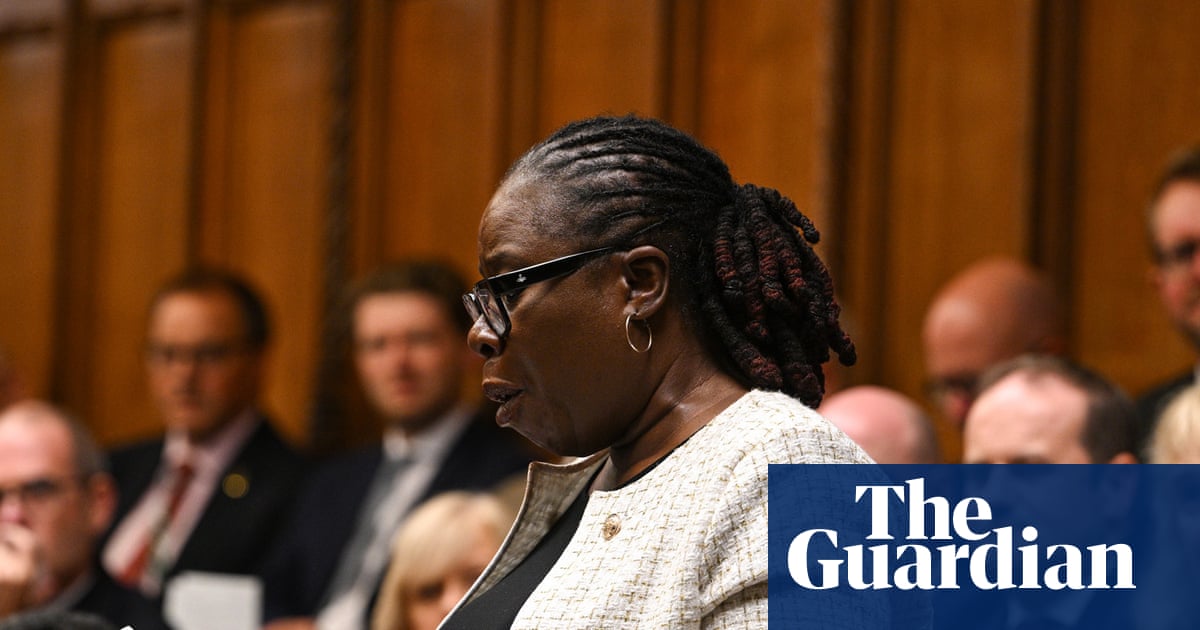The forensic science sector is in a “graveyard spiral”, according to a parliamentary inquiry that has warned of biased criminal investigations, a rising risk of wrongful convictions, and murder and sexual offence cases collapsing due to missing evidence.
The three-year inquiry set up by the all-party parliamentary group on miscarriages of justice has outlined how a series of “reckless policy decisions” over the past decade have brought forensic science to a point of crisis. A near-monopoly in the commercial sector means there is now a dangerous single point of failure and the increasing reliance on in-house police laboratories risks compromising scientific impartiality, the inquiry found.
“Forensic science in England and Wales as currently configured isn’t working for anyone – not for the police, not for the lawyers or for the courts, not for the scientists themselves, and not for the general public who get caught up in the criminal justice system,” said Prof Angela Gallop, co-chair of the Westminster Commission on Forensic Science.
“Like a plane hurtling downwards in what has become known as a ‘graveyard spiral’, with the pilot in desperation making increasingly erratic decisions, it can only be a short time now before it impacts the ground.”
Since the closure of the Forensic Science Service in 2012, work has been divided between commercial providers and, increasingly, in-house police laboratories. However, the inquiry said there were now real concerns about bias due to the expanding types of investigations the police conduct, paired with inadequate legal aid funding for defence experts.
The report recommends an immediate halt to the expansion of police in-house forensic provision and, in the long term, removing forensic science provision from police oversight.
“The increased risk of miscarriages of justice is self-evident and the potential for investigative failures leading to further injustices is continuing to grow,” said Gallop.
The report also highlights the imminent collapse of the forensics market, which is heading toward a “last man standing” monopoly after the UK’s largest forensics provider, Eurofins, acquired the second largest provider, Cellmark, which was on the brink of insolvency last year. Eurofins now delivers more than 85% of external science provision, the report estimates, a proportion that could rise further, creating the risk of a single point of failure.
Another concern raised is the police handling of crucial evidence used to prosecute the most serious crimes, with a growing number of cases dropped due to “disappearing material” including DNA samples, CCTV footage, weapons, drugs and mobile phone data.
Missing evidence was recorded as the reason for 30,552 prosecutions being dropped between October 2020 and September 2024, the report reveals. This included 70 homicides and 554 sexual offences, and represented just over 2% of all prosecutions nationally. The Metropolitan police had 4.6% of cases dropped because of missing evidence.
Prof Carole McCartney, a criminologist at the University of Leicester, who helped compile the figures, said: “The most obvious cause for alarm is that each of these cases is potentially a victim who will never see their perpetrator in court or see their case brought to justice.
“And if we’re not retaining evidence, people who are victims of miscarriages of justice can’t get out of prison and cold cases will stay unsolved if you lose the evidence. It’s a fundamental part of the criminal justice process.”
The inquiry adds to continuing criticism of the Criminal Cases Review Commission (CCRC), after the cases of Andrew Malkinson, who spent 17 years in jail for a rape he did not commit, and Peter Sullivan, whose murder conviction was overturned last month after 38 years. The report describes a culture of “complacency in respect of a lack of scientific knowledge and understanding” among CCRC staff and recommends the recruitment of permanent staff members with scientific backgrounds.
Kim Johnson MP, the chair of the APPG on miscarriages of justice, said the Post Office Horizon scandal and the exonerations of Malkinson and Sullivan highlighted the need for urgent reform of forensic provision.
“These cases are not isolated incidents but symptoms of deep, systemic failings in our criminal justice system,” she said. “We owe it to victims, their families, and the wider public to demand transparency, accountability, and meaningful reform. We must see the government act on this report without delay to restore trust and prevent future injustices.”
A CCRC spokesperson said that in response to an independent review of its handling of the Malkinson case it had taken a number of steps to improve its forensics provision, including training sessions for staff. It said its Forensic Opportunities Programme, announced last year, was analysing pre-2016 convictions to assess whether advances in DNA technology could identify an offender and that it had recently recruited a full-time forensic science and evidence adviser.
A government spokesperson said: “We understand the importance of high-quality, timely forensic evidence for an effective criminal justice system that prevents crime, prosecutes suspects and gives victims the justice they deserve.
“In November 2024 at the NPCC/APCC summit, the home secretary acknowledged that the adoption of forensic science across the board has been uncoordinated. That’s why we are appointing a national forensic science lead who will transform our approach by helping to create a new model of delivery with the police and forensic leaders to raise standards and improve efficiency, and ultimately build greater public confidence in our criminal justice system.”

.png) 3 months ago
59
3 months ago
59

















































